How to Behold Rae Armantrout
WOBBLE, Rae Armantrout. Wesleyan University Press, Middletown, CT 06459, 2018, 160 pages, $14.95 paper, www.wesleyan.edu/wespress.
PARTLY: NEW AND SELECTED POEMS, 2001-2015, Rae Armantrout. Wesleyan University Press, Middletown, CT 06459, 2018, 252 pages, $19.95 paper, www.wesleyan.edu/wespress.
Rae Armantrout has published more than two dozen books of poetry, one of which, Versed, won the 2010 Pulitzer Prize. Her Wobble (2018) was a finalist for The National Book Award. She is credited as one of the founders of the West Coast group of Language poets, and, though I am not usually drawn to what Jane Hirshfield calls L-A-N-G-U-A-G-E poets, Armantrout keeps crossing my radar. I decided to regard that crossing as an invitation, and get to know her better.
I went to hear Armantrout at a local library. I read reviews. A friend—a Dickinson scholar—asked me if I had read 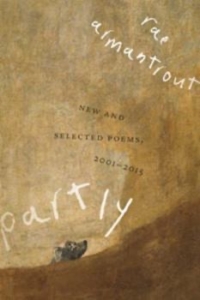 Armantrout’s poems. Flicker of interest, flame turned higher. Whatever was going on here, I wanted to pay attention and not miss it.
Armantrout’s poems. Flicker of interest, flame turned higher. Whatever was going on here, I wanted to pay attention and not miss it.
If sadness
is akin to patience,we’re back!
Pattern recognition
was our first responseto loneliness.
(from “Upper World,” in Partly)
My willingness to explore, not only Armantrout, but language poetry in general, or maybe what some call “concrete” poetry—where words and very short lines set in white space take on a structural or sculptural quality—began to shift for me a couple of years ago, when Kathryn Rantala of Ravenna Books edited my Dickinson poems, and pushed her “more minimalist” agenda. The editing process (Rantala’s suggestions, my push-back, our compromises, my constant checking-in with Dickinson) taught me what can be left out of a poem, yet leave the poem still standing. That intrigued me.
And the Dickinson connection is important. I found this in the Boston Review:
William Carlos Williams and Emily Dickinson together taught Armantrout how to dismantle and reassemble the forms of stanzaic lyric—how to turn it inside out and backwards, how to embody large questions and apprehensions in the conjunctions of individual words, how to generate productive clashes from arrangements of small groups of phrases. From these techniques, Armantrout has become one of the most recognizable, and one of the best, poets of her generation. —Stephanie Burt
There’s also this comment from Lydia Davis in “A Close Look at Two Books by Rae Armantrout” (Essays One,):
[Armantrout’s imagery] draws fully from the well of America and all it has to offer—the American childhood, the American family, the American holiday, the American landscape, the American city, the American culture, American television, and the American language.
Lydia Davis also calls Armantrout’s poems “compact” and “clear.” And, as the quote above points out, part of the humor is that it is drawn from our highly ironic, fragmented capitalist world. Given that it’s an election year, even more reason to keep looking.
I will confess up front that it took me a while to reach even the place where I wanted to “get” Rae Armantrout’s poetry; I’m not sure, even now, that I’m all the way there. But I didn’t want to let my resistance—to poetry that doesn’t (like mine) tell a story and lean on imagery to make its point—stand in my way.
I found her 2018 book, Wobble, at the library; a friend passed along Partly to me. The real turning point came 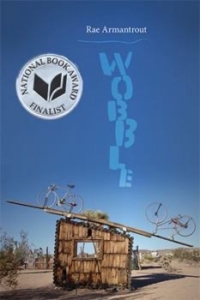 when I heard Armantrout at a local reading, an intimate café setting. In short, I finally felt myself falling through the lines, into the poetry—and the humor. It’s all in the voice:
when I heard Armantrout at a local reading, an intimate café setting. In short, I finally felt myself falling through the lines, into the poetry—and the humor. It’s all in the voice:
Clouds, conjoined
and tattered,freely budding,
unbeholden(from “Life History,” Wobble)
In such a poem, every word must matter. “Conjoined,” makes me think of conjoined twins (shouldn’t it?) but then they tatter, then the clouds are “freely budding” like an apple tree in spring. “Unbeholden” can mean no one’s looking (except we are looking), but it can also mean not in debt to anyone, without obligation. They are conjoined like twins, but only at first, then tattering off on whatever path they care to take. The poem unfolds less on the page than in the reader’s imagination.
It’s not a subtitle, but on the back cover of Wobble, there’s a heading (in the same style as the title) that could be a subtitle: POEMS WRITTEN ON THE SHIFTING GROUND OF IMMINENT COLLAPSE. It’s not that she has become completely opaque for me, but at a certain juncture I suddenly began to understand that the opaqueness of these poems is intentional. As she writes in “My Pleasure”: “It is my pleasure / and my privilege / not to understand this.”
If Armantrout isn’t for everyone, I am willing to bet she doesn’t intend to be. (She’s been too busy writing.) Hers is a wry, often tongue-in-cheek sort of voice. Poet and NYer reviewer Dan Chiasson sees this, too:
[Armantrout] takes the basic premises of Language writing somewhere that they were never intended to go: toward the mapping of a single individual’s extraordinary mind and uniquely broken heart.
I wish I could do more here, but the real trick to all this was attending her reading at Redmond’s SoulFood Café that made her voice, her wit, her humor click into place. I have not read (yet) all of Partly, but I’ve been searching for this fragment, heard (not seen): “Thought is a washed pot.”
In these bloggish reviews, I like to include at least one poem in its entirety. So, in part because have a box of rented Mason bees which I’ve been keeping an eye on, in part because I think this is a poem about time (which I’ve been struggling with), I’ll share this poem:
Bees
If not being (something)
is the same as being,then I will live forever.
—
Round shadows inside
the sunflower’scorona.
—
If I lived forever
would the present’s noosebe looser?
—
Moon shadow made of
angry beesconfined. Come in.
—Rae Armantrout (from Wobble)
It (it?) might be made of angry bees), but Armantrout invites us to behold.
To explore more about Armantrout on your own, take a look at Ilya Kaminsky’s essay, which asks, “Who is this poet channeling?” She is of course profiled at Poetry Foundation and all over the Web.
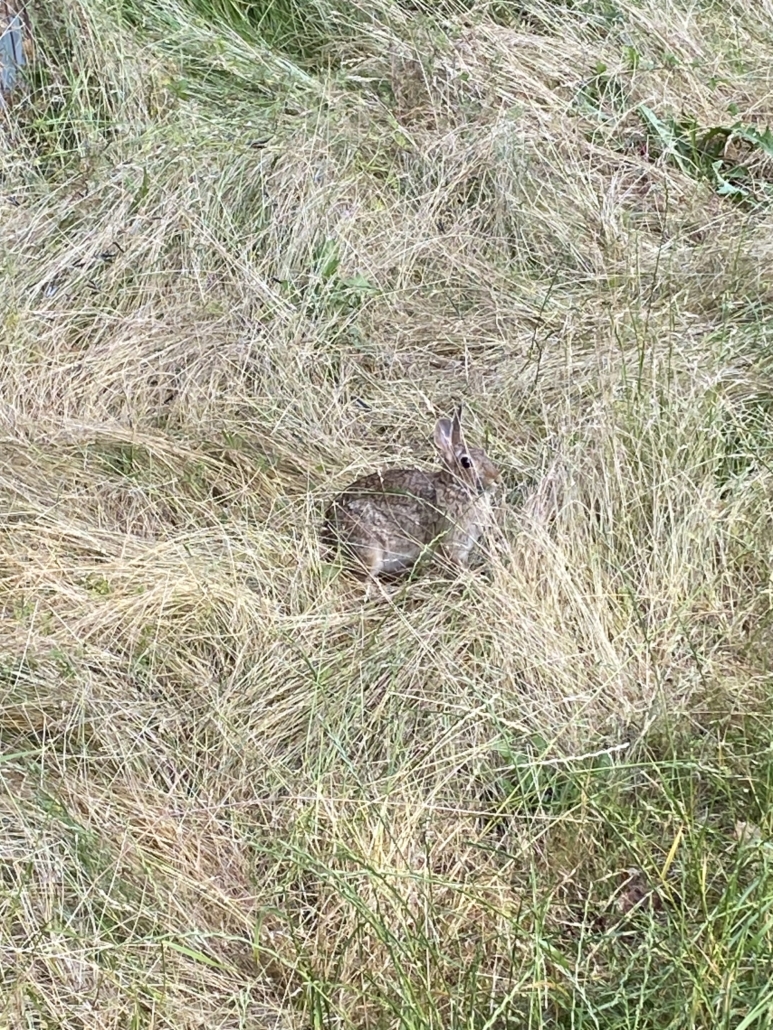


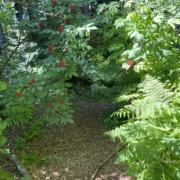

 Although I have looked her up (and you can, too, beginning at
Although I have looked her up (and you can, too, beginning at 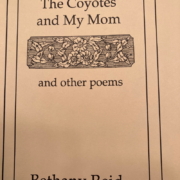
 Even though I seriously intended, long before poetry month began, to participate in the Great Poetry Giveaway commemorating National Poetry Month, I put off the communication necessary, and it’s now too late to be “official,” on
Even though I seriously intended, long before poetry month began, to participate in the Great Poetry Giveaway commemorating National Poetry Month, I put off the communication necessary, and it’s now too late to be “official,” on  1) Signed copies of my TWO books, Sparrow, published in 2012 by Big Pencil Press, and winner of the Gell Poetry Prize; AND The Coyotes and My Mom, published in 1989 by Bellowing Ark Press (and now out of print). If you already own my books, you’re still welcome to enter the drawing — you can give your new copies to a friend.
1) Signed copies of my TWO books, Sparrow, published in 2012 by Big Pencil Press, and winner of the Gell Poetry Prize; AND The Coyotes and My Mom, published in 1989 by Bellowing Ark Press (and now out of print). If you already own my books, you’re still welcome to enter the drawing — you can give your new copies to a friend.